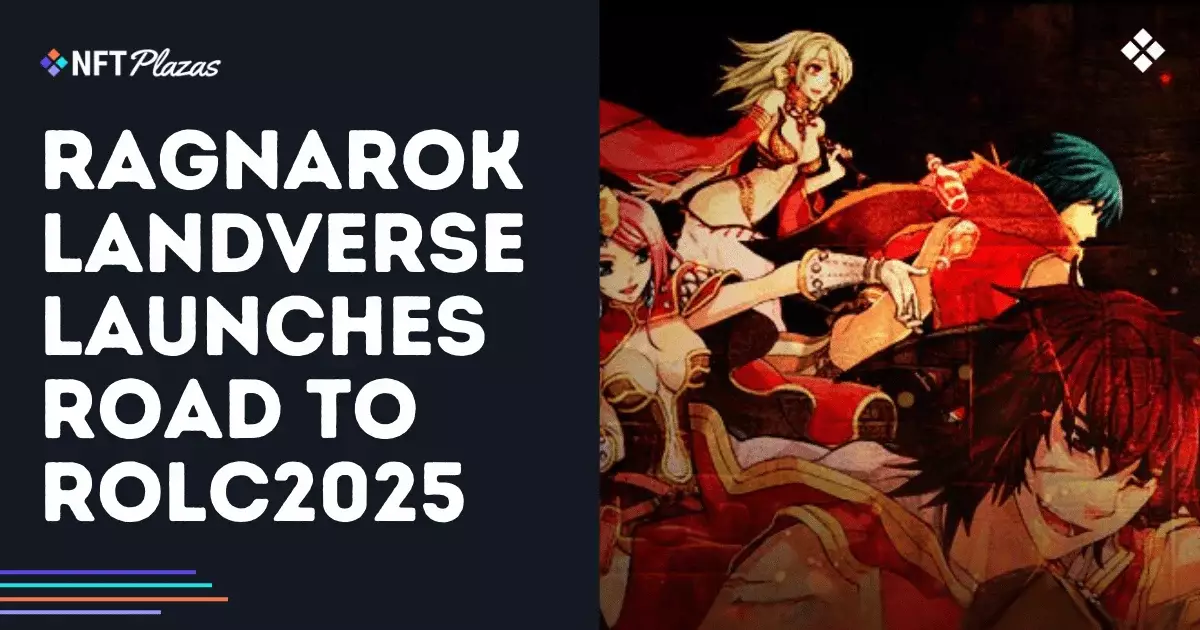In the rapidly evolving landscape of NFT gaming, few titles are boldly staking their claim quite like Ragnarok Landverse: Genesis. Recently unveiled is a compelling new competitive format directed at guilds, making a profound statement about the future of organized gaming. Dubbed the “Road to ROLC2025,” this multi-stage tournament and its league-based system offer an intriguing outlook for both die-hard fans and newcomers alike. The decision to focus on guild-based competition over solo participation not only magnifies teamwork and strategy but also positions this title as a potential front-runner.
The selection process for participating guilds in the Ragnarok Landverse Championship 2025 (ROLC2025) perfectly encapsulates the spirit of competitive gaming while offering tangible rewards. With a total prize pool of $30,000 for the inaugural season, the excitement and competition are tangible. Everyone craves genuine stakes, and Ragnarok is delivering. What’s even more fascinating is the way points are aggregated across seasons. It compels players to remain consistently engaged, rather than relying on a single performance to dictate their potential.
The Essence of Guild Competitiveness
One of the most astute features of this tournament structure is its focus on guilds as the heart of competition. In many games, solo players often find a way to dominate, but Ragnarok’s approach ensures that cohesive strategy and teamwork reign supreme. The player base understands the importance of working with others, which not only adds layers to gameplay but fosters a sense of community. In an age where multiplayer games often find themselves plagued with toxic solo players, this initiative should act as a breath of fresh air. Guilds are purposefully designed to instill a shared goal and unify player efforts, effectively elevating the gaming experience as a whole.
The requirement for players to join or create guilds to compete removes the noise of individualism and introduces a ripe breeding ground for collaboration and strategy. This facet, fundamentally tied to ethos, aligns with the ever-growing necessity for community engagement in the gaming world. In embracing guilds, Ragnarok isn’t just crafting a competitive structure—it’s championing a revolution that underscores the importance of teamwork in digital realms.
Scheduled Warfare: The Road to Glory
Scheduled weekly battles during the “War of Emperium” (WoE) bring a structured sense of urgency to gameplay. Unlike many casual multiplayer pursuits, the established timetable fuels anticipation and accountability among guild members. Every Saturday, players unite to engage in these strategic skirmishes, vying for control of five designated castles. While some might argue that this rigid format could lead to burnout, the reality is that it prioritizes preparation and strategy, allowing guilds to hone their skills in a highly competitive atmosphere.
The uniqueness of point distribution adds another dimension for competitive teams. With points awarded based on territory control, guilds must prioritize their strategies, creating intricate plans to dominate the battlefield. The variability in point values from season to season introduces another layer of strategy, forcing guild leaders and players to remain agile and adapt accordingly.
A Pathway Toward Majestic Showdown
The climactic nature of the ROLC2025 culminates in an elimination phase that promises nail-biting action. Once the minor events set the tone, the top eight guilds enter the major event—a Round Robin format. This sophisticated structure ensures that skill disparities are minimized as teams face off against opponents of similar caliber. With a double-elimination bracket, there’s room for mistakes, deepening the strategic aspect of the competition further. It’s a model that rewards consistency, resilience, and—most importantly—skill.
In the gaming community, there’s often an intense debate about balancing competitive integrity and enjoyment. The approach taken by Ragnarok nails this balance beautifully. By rewarding guild performance and ensuring that solo players don’t undermine the overall structure, it stands as an exemplar within the NFT gaming sector.
Embracing teams while eliminating solo queues not only enhances camaraderie but brings gaming back to its roots—play, challenge, and triumph among allies. In this regard, Ragnarok Landverse: Genesis is setting a high standard, combining competitive integrity and community focus into one exhilarating package. Where many games falter in the midst of solo-driven dynamics, Ragnarok provides an illuminating example for the industry, urging fans to take back the spirit of collective gameplay.


Leave a Reply